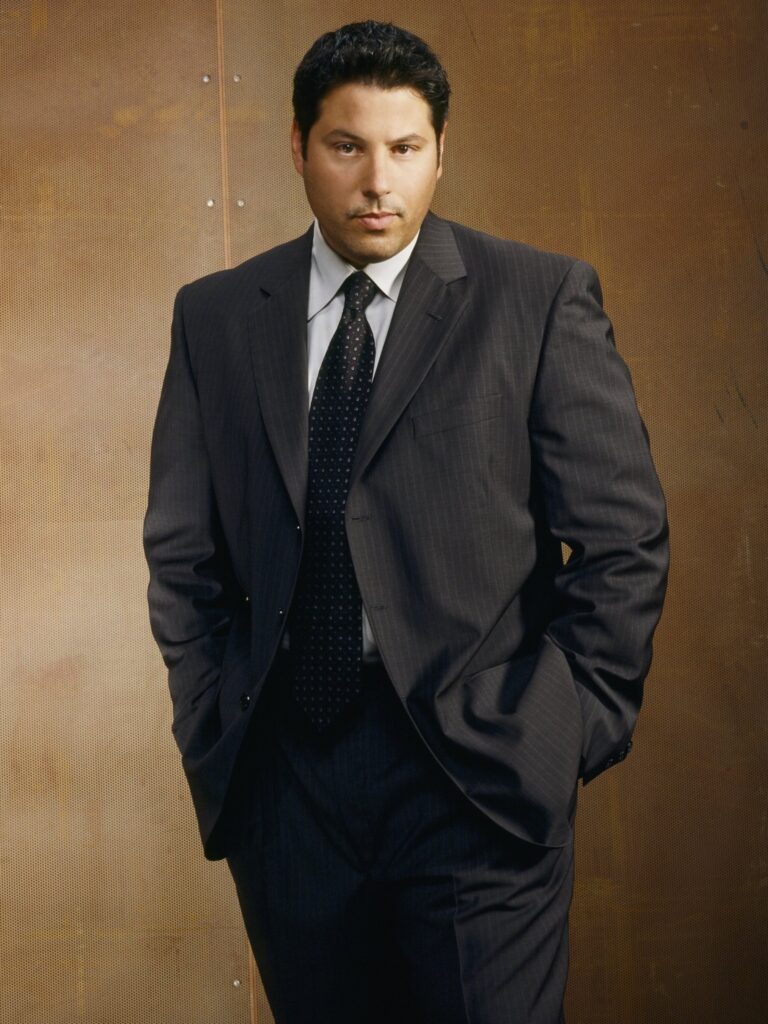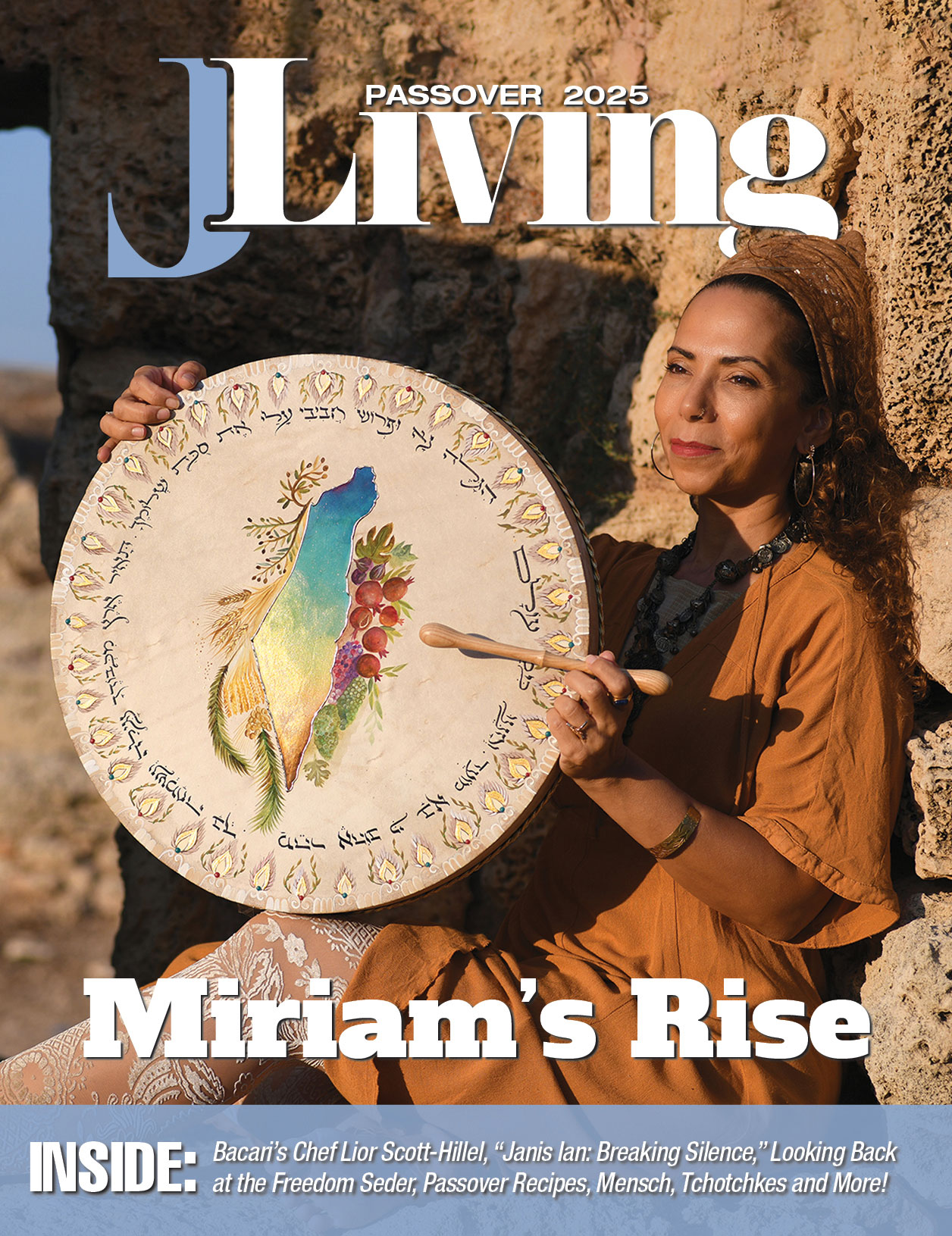Mensch – Greg Grunberg
Actor, Advocate and Philanthropist
By Debra Eckerling
Most people know Greg Grunberg from his various mostly nice-guy roles on TV (Felicity, Alias, Heroes) and film (Star Wars, Star Trek). “I play mensches,” Grunberg said. “That’s the best, most flattering thing is when someone’s casting a movie or TV series, and they go, ‘We need a menschy guy, [although] they may not use those words…. I’m always up for those roles, and I take pride in that.
Grunberg is also a writer and producer, as well as a dedicated epilepsy advocate and philanthropist. When his oldest son, Jake, now 27, was diagnosed with epilepsy as a child, Grunberg and his family sprung into action. Now, about 20 years later, his resolve and enthusiasm for starting conversations – and encouraging education – has never wavered.
“When [Jake] was 7, he started having seizures, and we learned very quickly, there’s a stigma attached,” Grunberg said. “The people who have it, the family members of those who have it – they don’t want to talk about it. The truth is to help yourself, to find a cure, to remove the stigma, that’s exactly what you should be doing.”
Grunberg, who started TalkAboutIt.org in 2009, hosts the “Talk About It” podcast and has a video series TalkAboutItOnVideo.com.
“The reason why it’s ‘Talk About It,’ not ‘Talk about Epilepsy,’ is because we do other causes, too,” he said. In his latest project, Grunberg teamed with epilepsy drug maker Jazz Pharmaceuticals for a web series, called “The Care Giver.”
“The Care Giver Series is a great way to get into a very, very reliable thing,” he said. “We’re all caregivers. We all love somebody. … I go and spend a couple of hours with these caregivers around the country so that they can have a day of care for them-selves.” Learn more at TheCareGiverSeries.com.
How is Jake doing now?
How is Jake doing now? Jake is living well with it. He’s a perfectly normal 27-year-old guy. It’s kind of an invisible condition or disease, because unless you see someone have a seizure, you don’t know they have it. It’s been a very long time since Jake’s had them, but it was very bad for a while; he had brain surgery as a little kid, so we will never forget. We always appreciate everything.
I always say selfishly, I’m [an advocate] because I need to do it. I have to do it. We have to laugh about it in the house. We have to cry about it. We don’t keep anything inside. We never have. I’ve done everything I could possibly do for the epilepsy community, and I continue to do it. And I’m happy to do it, It’s empowering.
In what ways do you feel philanthropy has enriched your life?
It gives the things that I do purpose … especially in the business that I’m in, as much as I love acting, and I love expressing myself in the art form of it, and trying to be as real as possible, and and do the best job I can and what I do.
Doing something that is fulfilling a real need for people – trying to help make other people’s lives better, your life better, the lives of your loved ones better – it fills my heart. It’s the most important thing that I do, that we do as a family. It’s everything.
I wish I had the kind of money that I could wipe out a disease with a check. I’m not that guy, but I started a band called, The Action Figures (formerly The Band from TV). We’re a bunch of actors, we each have a cause, and we raise money for them.

How did “Let’s Talk About It” come about?
I’ve been doing [“Let’s Talk About It”] for almost 20 years.
I was at a conference called American Epilepsy Society (AES).And all the doctors were there, and they were thanking me [and saying] we need a Hollywood voice. They kept saying, “We just need to talk about it.” I kept hearing that over and over again. I had to speak that night. I was up in my hotel room, and I just looked up. TalkAboutIt.org, and it was taken, [but I was able to buy
it].
Then I went downstairs, and I told that story to the room, and there were brain surgeons crying. There were scientists crying. And I was like, “Millions of people are affected by this [and they] desperately need someone to be their voice.”
The other thing is, they all said to me, ‘When Jake gets over the hump – he was going through a rough patch; he was like 11 or 12 – we’re never gonna see you again.’ It was kind of their way of challenging me. And I said, ”I’m not going anywhere.”
How can people learn more about your advocacy?
For epilepsy, Go to TalkAboutItOnVideo.com. You’ll see your favorite celebrity, and you will learn something about epilepsy. It’s important. I hope you have no connection to epilepsy at all. But, there’s millions of people out there. Somebody you’re gonna cross paths with will have a seizure, and you will know [simple things] to do.
It’s really important that you educate yourself. You never stick anything in someone’s mouth. You don’t let them fall. A seizure is not gonna hurt them. It’s the fall. So if you see someone start having a seizure, grab them and not hold them tight or anything. You can’t stop the seizure. Take them down to the ground. Let them have their seizures, and they will ride it out after 2 minutes. They’ll be okay 90% of the time. Call help after 2 or 3 minutes.
I can’t encourage people enough to go to TalkAboutItonVideo. com or TheCareGiverSeries.com.

Where did your “menschiness” come from?
My dad is the one who really instilled this hustle and this menschy quality. My dad is the biggest mensch of anybody that I know. He’s gonna turn 91 next year. He’s 90 [and] he’s doing well, knock wood. He was in the shamata business. Then he was in the solar energy business.
He never sat and waited for the phone to ring. He made stuff happen out of nothing. He’s always taking advantage of opportunities that were brought to him, and many were because people wanted to be in business with him. They knew they could count on him. He was a trustworthy, smart businessman, so hopefully some of that’s rubbed off on me.
There are many times when I think, “Why am I doing this?” Oh yeah. My dad planted that seed.
Can you tell me a little bit about your Jewish upbringing? Do you remember the first time you participated in Tzedakah?
My Jewish upbringing was wonderful. It was in Los Angeles. I grew up going to Stephen S. Wise Temple with the incredible Rabbi Zeldin. I was bar mitzvahed there. It was a great place.
My parents always made sure that I was giving back and helping others; it was just a big part of growing up. Whether it was through the temple or not, we always had that aspect of us; our family was always helping other people. When I was younger, I remember through sports – I played baseball; my kids did this, too – they have a thing called the Buddy Program here.
When we were kids [it] was called Champions. All the kids at Little League would go out and they would help kids that had some sort of a disability, but they still wanted to participate in sports

What advice do you have for future mensches?
My dad’s always taught me these two words. and it sounds like Nike taught me these words, but it’s not. My dad’s always said, Just go. And that’s in life and in business. I cannot tell you how many opportunities have come up because I’ve been there.
When somebody says they need help, just go. When somebody has the birth of a child, the death of a family member or a friend, God forbid, a bar mitzvah, a bat mitzvah, a quinceanera, any celebration of these mitzvahs, just go.
Don’t text. Even if you can’t go, call. Don’t be the person that passively goes on social media and says, “Oh, I’m so sorry to hear about your …” Call your friend. Give them a hug. Just go. Go the extra mile. They will never, ever forget it. But if you’re not there, they’ll remember it.
There’s been times when somebody’s sick in the hospital. I don’t call and say, “What can I get you?” Now, you’re creating a job for them. Now they’re like, “Oh, now I gotta tell them what to do to help me.” Don’t do that. If someone’s in the hospital and you have the ability to stop by, just go and stop by. If you can’t get in, they’ll tell them that you went. It means the world. So just go.
Who inspires you?
My dad inspires me, my wife really inspires me, and all three of my boys inspire me. I get inspiration all over the place. Another person that inspired me. I’m very, very lucky that I have a friend that is like my brother; my best friend has inspired me my whole life. We’ve been friends since we were 3. We talk every day, and it’s very, very fortunate that I have somebody like that.

Anything to add?
I took my father-in-law to Israel. The majority of the people in Israel are not Jewish; I couldn’t believe it. There are so many beautiful religions and beautiful people, and they all coexist because they have to in Israel. It is amazing. That’s why people have such a positive feeling when they leave Israel. And if the world could be like that, I think the world would be a better place.
You go and sit down in any cafe you’re gonna realize, “This person who doesn’t share my views on certain things, loves their family as much as I love my family.” I’m interested in what they do as much as they’re interested in what I do.
Don’t let the differences define you. Let the commonality define you, and let’s hope we get back to that.
A final piece of advice?
Remember to celebrate the goodness in people. Recognize the goodness and pass it on. You don’t have to buy coffee for the person in back of you. But just take a second to recognize people. If you see somebody in a wheelchair. look at them and say, “What happened? How did you get in the chair?” They want to talk. They don’t want you to stare at them and then wonder and walk away.
Engage with a smile and a question. There’s nothing wrong with that.
What is your favorite Jewish meal?
I have a very famous brisket that has been covered in the press over the years, and it’s from my nanny Helen Klein, God rest her soul. She was the sweetest ever, and she made a thrice-cooked brisket that is absolutely incredible. It should be called Nanny’s Chipped Beef because it falls apart like crazy.
That’s my go-to. I’ve done it on the news a couple of times. I absolutely love a good brisket, and now I’ve got a smoker, and I’ll smoke brisket, too, for 18-20 hours, and it’s just the best. I love it.





























